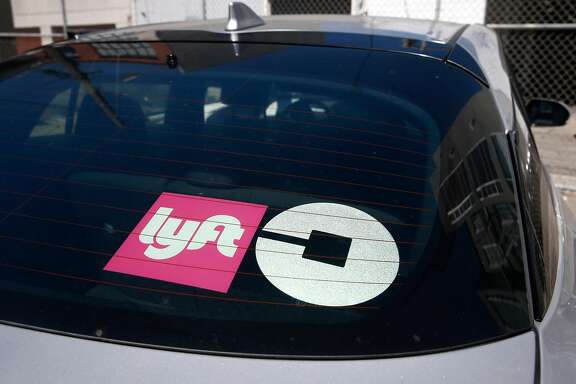Study finds Uber, Lyft drivers show bias against blacks, women
By Daniel DeMay
October 31, 2016 Updated: October 31, 2016 4:32pm
Photo: Paul Chinn, The Chronicle
A fleet of Toyota Priuses are parked in the Evercar lot in San Francisco, Calif. on Aug. 30, 2016. Clients enrolling in the Evercar program can rent a Prius for $8 an hour to drive for either the Uber and Lyft ride sharing services.
A newly published study found that being white or male can be an advantage in getting a ride from Uber and Lyft drivers.
The study by the National Bureau of Economic Research found that African Americans are more likely to face longer waits and cancellations, and women are more likely to get taken for unnecessarily long rides.
University of Washington, Stanford and MIT researchers hailed more than 1,500 trips with the two San Francisco ride-hailing companies, as well as Flywheel, a taxi-hailing app, in Seattle and Boston to see what impact race or perceived race or gender might have on wait times, cancellations and other factors with the rides.
The results of the study come at a time when ride-hailing companies and other pillars of the gig economy are squaring off with the rules and regulations of more established businesses.
Researchers noted this kind of new technology has the opportunity to reduce long-standing patterns of discrimination. But the study suggests drivers are still finding ways to pick and choose their passengers.
In Seattle, black passengers saw “statistically significantly” longer waits for rides from Uber or Lyft to be accepted. In Boston, the discrimination appeared even more pronounced.
“We found that (Uber) drivers are nearly three times as likely to cancel a ride on a male passenger upon seeing that he has a ‘black-sounding’ name,” researchers wrote in the conclusion of the study.
Uber and Lyft both responded that they do not tolerate discrimination, and that they are intent on reducing such behavior, though neither addressed the study’s findings directly.
“We believe Uber is helping reduce transportation inequities across the board, but studies like this one are helpful in thinking about how we can do even more,” said Rachel Holt, head of North American operations for Uber.
The study found little if any effect of race on Lyft cancellations. But Lyft drivers can see the rider’s name and photo before accepting, allowing them to discriminate by simply not accepting the ride. Uber drivers see a first name and photo only after they accept, forcing them to accept and then cancel the ride, potentially leading to more cancellations, researchers wrote.
And researchers also pointed out that it was drivers — not the companies — behind the wheel.
“This discrimination is not the result of any policy by ride hailing providers, but rather the behavior of individual ... drivers,” they wrote.
The study also found evidence in its Boston rides that women were taken for rides that are roughly 5 percent longer than men.
Uber and Lyft representatives noted the companies’ aims to serve low-income communities and people of color.
“We are extremely proud of the positive impact Lyft has on communities of color,” Lyft spokesman Adrian Durbin said in an email. “Because of Lyft, people living in underserved areas — which taxis have historically neglected — are now able to access convenient, affordable rides.”
The study also found that discrimination among taxi drivers is alive and well, with white passengers 40 percent more likely than black passengers to get the first cab they hailed on the street.
Researchers offered a handful of ideas for addressing the issues, including removing names from bookings or passengers using nicknames that “de-identify” them from their race. They also suggested Uber and Lyft audit drivers’ behavior.
Daniel DeMay is a SeattlePI.com staff writer. Email: daniel.demay@seattlepi.com Twitter: @Daniel_DeMay




No comments:
Post a Comment